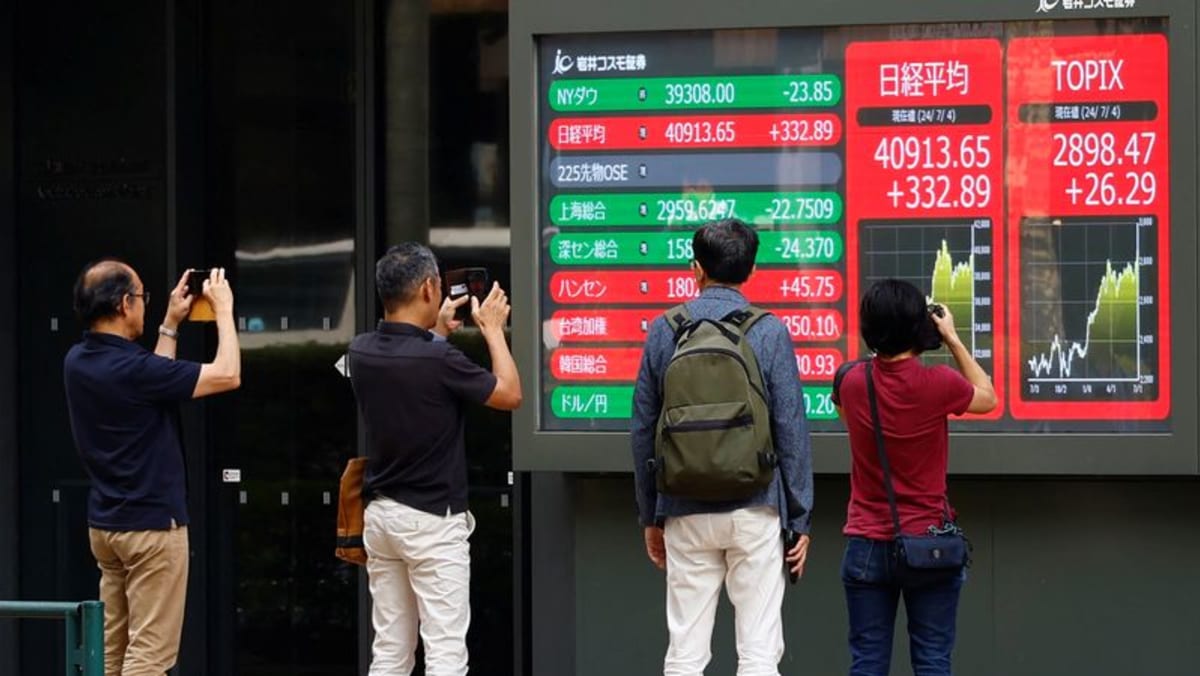TOKYO :Japan’s Nikkei share average slumped to an eight-month low on Thursday after U.S. President Donald Trump revealed a broad set of reciprocal tariffs, including a larger-than-anticipated 24 per cent levy on Japanese goods.
The Nikkei dropped as much as 4.6 per cent in early trading, diving to 34,102.00, its lowest point since August 7. By the close, the losses had moderated, with the index finishing down 2.8 per cent at 34,735.93.
The broader Topix lost as much as 4.3 per cent before recovering slightly to end the day 3.1 per cent lower.
“We thought tariffs would be 10 per cent, maybe 20 per cent, but instead they were a whopping 24 per cent,” said Kazuo Kamitani, an equities strategist at Nomura Securities.
“Call it the Trump tariff shock,” he said. “The market is firmly in risk-off mode.”
Banks were the worst performers among the Tokyo Stock Exchange’s 33 industry groups, sliding 7.2 per cent, as a sharp decline in bond yields darkened the outlook for income from lending and investing.
The potential impact of tariffs on both domestic and global growth also raised speculation that the Bank of Japan may need to delay further interest rate hikes.
Resona Holdings was the worst-performing lender in the Nikkei with an 8.7 per cent slump.
An index of shippers declined 6 per cent, and Nippon Yusen, Japan’s largest shipping line, dropped 5.6 per cent. In an interview with Reuters this week, the company’s president expressed concerns that U.S. trade barriers could ultimately slow down cargo flows.
A rally in the safe-haven Japanese yen exacerbated losses for the country’s numerous exporters.
The Tokyo bourse’s automaker sub-index dropped 4.5 per cent, with shares of Toyota Motor sliding 5.2 per cent.
In a rare respite among Trump’s aggressive tariff measures, the latest levies will not be added on top of a separate 25 per cent duty on car exports to the United States that is set to take effect later in the day.
Drugmakers were among the few stocks to rise as a group, following a White House white paper that included pharmaceuticals, along with semiconductors, on a short list of products exempted from reciprocal tariffs.
Japanese chip-sector heavyweights ended lower, but recovered from lows marked earlier in the session. Shares of Tokyo Electron dropped 3.7 per cent while Advantest declined 4.5 per cent.
Following Trump’s announcement, Japanese Prime Minister Shigeru Ishiba said he will continue to demand that the U.S. reconsider its tariff measures.
“Though some market participants are expecting quick deals (with Washington), negotiations could take time,” particularly since the White House has targeted non-tariff barriers to trade like VAT, said Norihiro Yamaguchi, an economist at Oxford Economics.
“The equity market is unlikely to bounce back given heightened uncertainties.”
